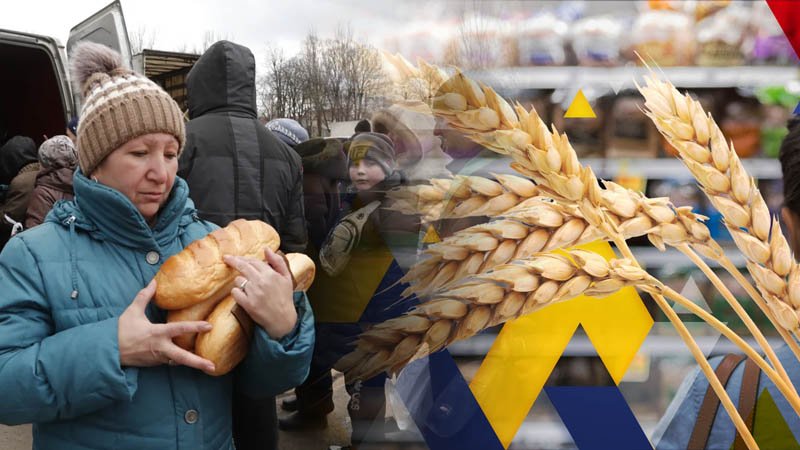The EU has announced a number of measures to increase food production. It has increased funding for agriculture by €500 million.

The European Union (EU) has been working to increase food production amid the Russian-Ukraine war. The war has disrupted global food markets, and has led to a sharp increase in food prices. The EU is concerned that the war could lead to a food crisis, and is taking steps to increase food production within the bloc.
The EU has announced a number of measures to increase food production. It has increased funding for agriculture by €500 million. This funding will be used to support farmers, and to help them increase their yields.
The EU is relaxing some environmental regulations in order to make it easier for farmers to produce more food. This relaxation includes allowing farmers to use more pesticides and fertilizers.
The EU is increasing the amount of land that is used for agriculture. This is being done by converting some land that is currently used for other purposes, such as forestry or tourism.
The EU is also working to increase food production in other parts of the world. The EU is providing financial assistance to countries that are struggling to produce enough food. The EU is also working to improve the efficiency of food production in these countries.
The EU’s efforts to increase food production are a response to the Russian-Ukraine war. The war has disrupted global food markets, and has led to a sharp increase in food prices. The EU is concerned that the war could lead to a food crisis, and is taking steps to increase food production within the bloc.
The Russia-Ukraine war is having a devastating impact on global food security, with Ukraine being one of the world’s leading exporters of wheat, corn, and sunflower oil. The conflict has disrupted exports, and prices for these commodities have skyrocketed. This is having a knock-on effect on food prices around the world, and is threatening to push millions of people into hunger.
Scientific and Technical Aspects
The scientific and technical aspects of the food security crisis are complex amid Russian-Ukraine war. On the one hand, the war has disrupted the global food supply chain, making it difficult to get food to where it is needed. On the other hand, the war has also led to a decrease in agricultural production in Ukraine, as farmers have been unable to plant crops or harvest them safely. This has further exacerbated the food crisis.
Social and Economic Aspects
The social and economic aspects of the food security crisis are also complex. The war has led to an increase in food prices, which has made it difficult for people to afford food. This has had a particularly devastating impact on the poorest people, who are already struggling to make ends meet. The war has also led to an increase in unemployment, as businesses have been forced to close or operate at reduced capacity. This has further exacerbated the economic hardship faced by many people.
What Can Be Done?
There are a number of things that can be done to address the food security crisis. One important step is to increase humanitarian aid to Ukraine. This will help to ensure that people have access to food and other essential supplies.
Another important step is to increase food production in other parts of the world. This will help to offset the loss of food production in Ukraine. Finally, it is important to address the underlying causes of the food security crisis, such as climate change and conflict.
Increase humanitarian aid to Ukraine
This will help to ensure that people have access to food and other essential supplies. The United Nations World Food Programme (WFP) is the leading provider of humanitarian aid to Ukraine. The WFP has been providing food assistance to millions of people in Ukraine since the start of the war. The WFP is also working to help farmers in Ukraine plant and harvest crops, and to distribute food to people who need it.
Increase food production in other parts of the world
This will help to offset the loss of food production in Ukraine. The United States, Canada, and Australia are some of the world’s largest producers of wheat. These countries are working to increase wheat production to help meet the growing demand for food.
Address the underlying causes of the food security crisis
Climate change and conflict are two of the main causes of the food security crisis. The United Nations Framework Convention on Climate Change (UNFCCC) is working to address the issue of climate change. The UNFCCC is working to reduce greenhouse gas emissions, which are causing climate change.
The UNFCCC is also working to help countries adapt to the effects of climate change, such as droughts and floods. The United Nations Security Council (UNSC) is working to address the issue of conflict. The UNSC is working to resolve conflicts peacefully, and to prevent new conflicts from breaking out.
Conclusion
The Russia-Ukraine war is a major challenge to global food security. However, by taking action on the scientific, technical, social, and economic aspects of the crisis, we can help to mitigate its impact and ensure that everyone has access to the food they need.
The EU’s efforts to increase food production are a positive step. However, it is important to note that these efforts will take time to have an impact. The war in Ukraine is ongoing, and it is unclear when it will end. In the meantime, the EU and other countries will need to continue to work to ensure that everyone has access to the food they need.